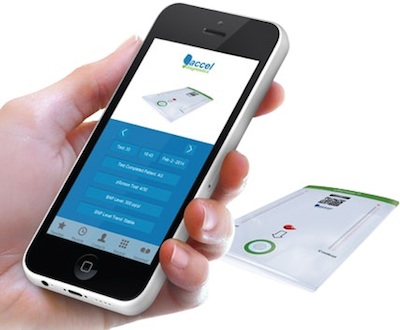 StartUp Health has added eight companies to its portfolio. This brings the number of companies that have been added to the program to 71. StartUp Health also released some demographic numbers about the companies that have been through the accelerator. These metrics included the total number of funding raised to date: $144 million, the percentage of physician and practitioner founders: 47 percent, the percentage of women founders: 23 percent, and the number of seed accelerator grads: 23 percent.
StartUp Health has added eight companies to its portfolio. This brings the number of companies that have been added to the program to 71. StartUp Health also released some demographic numbers about the companies that have been through the accelerator. These metrics included the total number of funding raised to date: $144 million, the percentage of physician and practitioner founders: 47 percent, the percentage of women founders: 23 percent, and the number of seed accelerator grads: 23 percent.
So far, three companies that went through StartUp Health have been acquired: Arpeggi, acquired by Gene by Gene in 2013; Avado, acquired by WebMD in 2013; and Basis Science, acquired by Intel in March 2014.
Here are the eight companies joining StartUpHealth:
Overland Park, Kansas-based ABPathfinder offers therapists tools to manage autism therapy. The software provides therapists with help when creating therapy programs, collecting data from sessions, graphing data results, and analyzing findings. The program costs$350 per month for one to 15 kids, $600 per month for 16 to 25 kids, and $850 per month for 26 to 35 kids.
Pittsburgh, Pennsylvania-based Accel Diagnostics, which also presented at AARP’s Life@50+ event in Boston last month, developed a test to screen for health issues that could reduce hospital readmissions for people with preexisting conditions. To test for health problems, users are asked to put their blood or urine on the credit card-sized test strip and then scan the strip using an app and their smartphone’s camera. While lab tests usually require users to go to a healthcare facility and then wait two to three days, Accel’s device sends results to the physicians immediately.
San Francisco, California-based Conversa Health offers patients a digital patient engagement platform for checkups between office visits. The platform collects feedback on patients’ progress and outcomes and then enables physicians t0 send personalized education materials to the patient. The company also uses data from these encounters to help providers monitor their populations and communicate with them when an intervention is needed. In February, Portland, Oregon-based GreenField Health, a subscription-based primary care clinic, announced a pilot with Conversa Health. A few days ago the company also announced that high profile patient data rights advocate Dr. Danny Sands had joined as its chief medical officer.
Toronto, Canada-based Cyclica aims to reduce risk during pharmaceutical clinical trials. The company hopes its software will give clients the resources to anticipate a drug candidate’s side effects before joining a clinical trial. This will in turn make it easier to make investment decisions in terms of further research and development.
Austin, Texas-based LifeAssist has developed a wearable device for seniors that provides situational, directional, and compliance help.
Boston, Massachusetts-based LuminaCare Solutions is developing a program for hospitals that identifies the correct treatment for bacterial infections in less than 12 hours. LuminaCare believes its product will reduce the risk of readmission for pneumonia and reduce the cost of care for COPD and other chronic conditions.
New York City-based Medisprout developed a video communication platform for healthcare providers to communicate with patients. Features include a chat and text function, two-way screen share, care coordination tools, patient engagement apps, two-way file sharing, and data collection option. The apps are customizable. The system costs $65 per month per provider.
Calgary, Canada-based SnapDx is developing a visually-appealing series of apps that offer information on medical guidelines and evidence-based clinical research. The company aims to help care providers access this information efficiently during patient appointments.

















